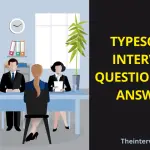Accepting a job offer that does not meet your expectations may not be a right decision. This situation is common among the employees searching for the job in urgency. In cases like these, if you get an acceptance letter, the first thing that can strike your mind is probably not replying or ghosting the company. But, is that a good solution?
If you get accepted for a well-reputed position in a good company, and if other recruiters know that you ghost people, they will be reluctant in offering a good position in the future. And you never know, in times such as recession and economic crisis you might have to get back to the company and apply again. By then, they might not even look at your CV and directly reject you. Therefore, it’s better to draft a response letter and mention why you are not accepting the job and the position. In this write-up, you will know about all that there is to write a good response letter declining the job without hurting the recruiter.
How Can You Respond To A Job Offer?
Job offers tend to be very formal. It becomes imperative to convey to your recruiter that you are not interested in the position. There are three direct means of response. In a written format, you have a formal email that can be written in a nice way explaining the reasons for the decline and thanking the recruiter for the job. You can call up your recruiter and tell him/her or their secretary that you want to book an appointment. If you want you can ask for a phone call or video call assistance to convey what you think about the offer as well.
Email to Decline Job Offer Letter
Emails are the best means to contact your recruiter and tell them that you would be declining the job. But you have to be very gracious and considerate in doing that. You need to mention your reasons as well as engage the person by complimenting their working style.
Tell about how you wished you could have taken the offer, but there are certain career aspirations and goals that you have in your mind and you want to achieve that cannot be pursued in the recruiter’s company.
Sample Email
(Your First & Last Name)
(Your Address Line 1)
(Your Address Line 2)
(Date)
(Name of Hiring Manager)
(Their Official Title)
(Name of Prospective Company)
(Prospective Company Address Line 1)
(Prospective Company Address Line 2)
Dear Sir/Madam,
I am honored that I got the opportunity to interview at their company. I was so happy that I was accepted at your company. It acts as a great boost in anyone’s confidence like that of mine. But I have to say sorry, I cannot accept the position, I have certain goals in my mind, and though the position looks the same, I want to work in more diverse roles to sharpen my skills as I have far bigger plans of running a business on my own.
I cannot stress this enough but thanks for this wonderful opportunity. If we ever cross paths, I will humbly remember our interview experience.
Yours truly
(Your name)
Things Not To Do While Writing the Email
- Avoid making common grammar errors
- Write to-the-point clauses
- Be clear with your reasons for the decline
- Do not sound disrespectful, read while drafting an email
- Do not use an improper structure. Always write in this structure – intro, description, or conclusion of the mail
- Spacing unevenly can be a big deterrence for the reader
- Prefer writing in an active voice
Email Structure
When you respond to someone you need to have a well-sorted structure to reply to that person. Let’s look at some of the necessities to structure the email. There has to be an introduction, description, and conclusion.
You also need to make it formal by mentioning your details at the top of the email body (the email body is the whole email), mentioning your details, and then mention employer’s details. In the description, you need to mention the reasons for the decline.
In conclusion, you often convey thanks to the recruiter. And at the bottom you mention your name. The top and bottom sections have to be always on the left.
Conversation (Call/ Video Chat/ In Person)
You: Thanks for agreeing to meet me. Sir, I am so happy that I could meet you to discuss the offer letter.
Recruiter: Yes, my pleasure. So are you accepting the offer?
You: Sir, I am so happy that you gave me this opportunity, but I am sorry that I cannot take up this opportunity. Hopefully, you know I want to handle more work about my position, and since the role at your company is so defined, it can be an issue in the long run. I am training myself to start my venture one day.
Recruiter: We can give you more work.
You: No sir, I do not want more work. I just want more avenues to participate in, it will help me learn how to run my business.
Recruiter: I wish I could have done something to help you. We have a much focused skill requirement and since we are a company quite established we are conservative about our style of work. Regardless, I wish you all the best. I will however suggest you join a startup if this is what you want.
You: Yes sir, Once again thank you for the advice.
Things Not To Do In Your Conversation
- Try not to sound patronizing in any manner
- Do not use self-asserting words
- In non-conventional mediums (call/video call) do not get swayed by the informal talking style
- Do not come shabby just because the conversation is on a video call
- Do not repeat statements
- If the recruiter does not agree, ask them for some time, look into the offer again and then decide.
Pattern of Conversation
The conversation here is extremely important. In context to the conversation, two major things that you need to keep in mind are:
- The mood of the recruiter.
- How well he is responding to your attempts at trying to discuss the offer.
In case the recruiter looks pissed, try to discuss more learning from the previous interview. Let him know the effect that the person had on you. Tell him reasons why it was important to have that experience. Once the recruiter is friendly then you can talk about the opportunities and why you took the decision that you took or what influenced you.
Some Phrases That You Can Include In Your Conversation
- “I am glad to have had the opportunity to get interviewed by you……”
- “Thanks a lot for this wonderful opportunity, However………”
- “It was such a nice experience talking to you and understanding……”
- “I completely get what you are saying. If I was in your shoes I would have had the same response, but………”
- “Thank you so much for understanding…….”
- “I wish I did not have to respond like that, just that…….”
How to Respond Through an Email Asking For a Salary Negotiation?
Sometimes, not accepting the job does not mean that the candidate completely wants to decline the opportunity. It can mean that the candidate requires some extra time to think through it.
In case, it’s a salary negotiation proposal and you would like for the recruiter to talk about it there are specific ways in which your influence will not categorically offend the recruiter. And in situations like these, you need to be patient and calm while delivering the news.
Sample Email
(Your First & Last Name)
(Your Address Line 1)
(Your Address Line 2)
(Date)
(Name of Hiring Manager)
(Their Official Title)
(Name of Prospective Company)
(Prospective Company Address Line 1)
(Prospective Company Address Line 2)
Dear Sir/Madam,
I am so glad about the job offer. The interview experience was so amazing and it has really helped me in more ways than one. But, I have had the opportunity to work at better pay and the salary that you are providing me is a tad bit less than what I had in my previous job. I want to know if you are open to having a deliberation on the salary.
Thanks a lot for your patience and for reading my email.
Yours Truly
(Your name)
Conversation Sample
According to my experience, a one-to-one conversation goes far ahead of just an exchange of emails. And there is a lot of space for misunderstandings to happen. And, I feel that is the reason why conversations are important to happen in order to ask for salary negotiation.
Inform first-hand about the conversation that you will engage in and book an appointment with the new recruiter:
You: Hello Sir, hope you are doing well.
Recruiter: I am doing fine, how are you?
You: I am good too. I came here to have a talk with you regarding the salary offer you proposed. I feel that as of now in order to work for the company knowing the experience and level of expertise I have, I should be getting more pay.
Recruiter: Okay, but see you haven’t worked in our company. The position might look the same to you. But the work stress, pressures, and challenges will be different.
You: I know, but in order to make a strong case about altering the offer. I brought in my certifications, experience letters, and recommendation letters for you to check.
Recruiter: That’s impressive, I will give you a 15-day watch period. Your seniors will assess your work and then convey to me your performance from day 1. After that period if the work is satisfactory we will get back to you and then choose your offer over our offer.
You: Thanks for hearing me out sir. Yes, I agree to this arrangement. Very much appreciated.
How to Respond To an Email If You Are Unsure About The Job?
Being skeptical about a job offer is perfectly fine, you do not have to be sure all the time. You can ponder on questions over pay. Here I will draft two emails specifically and we will target these areas:
- Asking for more time so that you can do your own research and understand the offer in its very detail.
- Draft an email that has all your doubts mentioned in it. All these doubts can be then cleared by the recruiter.
How to Respond To a Job Offer Email With Questions?
Here is the sample:
Dear (Recruiter’s name)
(Position name)
(Company’s name)
Sir/Madam,
I hope you are doing well. It was a great interview that we had in regard to my job. I feel I learned a lot about you and your company and regarding the sector in general. But, I do have some queries/questions related to the job. Hopeful that you will be kind enough to send in a reply and lower my skepticism.
- Is there any prospect of growth in salary within a year? (This should be asked if you had a better salary in your previous job or were amidst a raise but due to unforeseen situations you lost or left the job)
- When we had the job interview, we did not have a lot of discussion on benefits and perks tagged alongside the job, please give me an idea about it.
- Can you provide me a reply on the provision of extra pay on getting clientele for the company?
- Is there any provision to get extra pay in terms of working overtime? (Ask this question when you are experienced in the industry)
Thanks for your time Sir. I am grateful for that.
Yours Truly,
(Your Name)
How to Respond To A Job Offer Email Asking For More Time?
Dear (Recruiters name)
(Position name)
(Company name)
Sir,
Hope you are doing well. I cannot thank you enough for the guidance that you provided in my job interview. However, there are a lot of things that I need to look after before accepting the job. There is no issue with the position. I just have to make a detailed plan about my commitments and inform you earlier if there are roadblocks in between my work.
Thanks a lot for listening to me.
Yours Truly,
(Your Name)
Conclusion on Responding to Job Offer without Accepting
Getting a new job offer comes with its own batch of nervous butterflies in your stomach. During strenuous times it’s advised to be sure what you are getting into. Write emails and make conversations asking for doubt clearance. And naturally, all these queries will erode. How to do that? This write-up actually answers this question.













